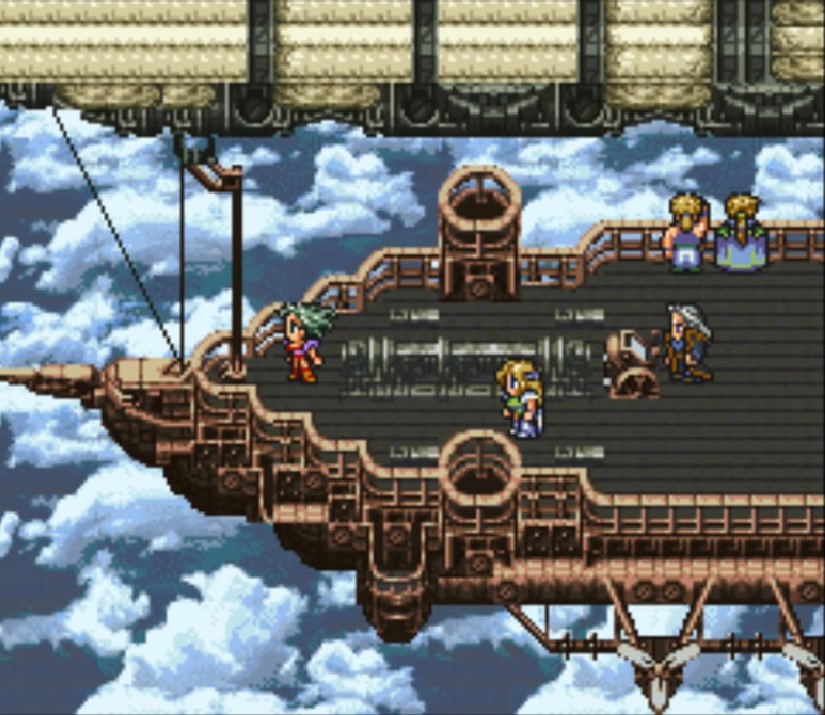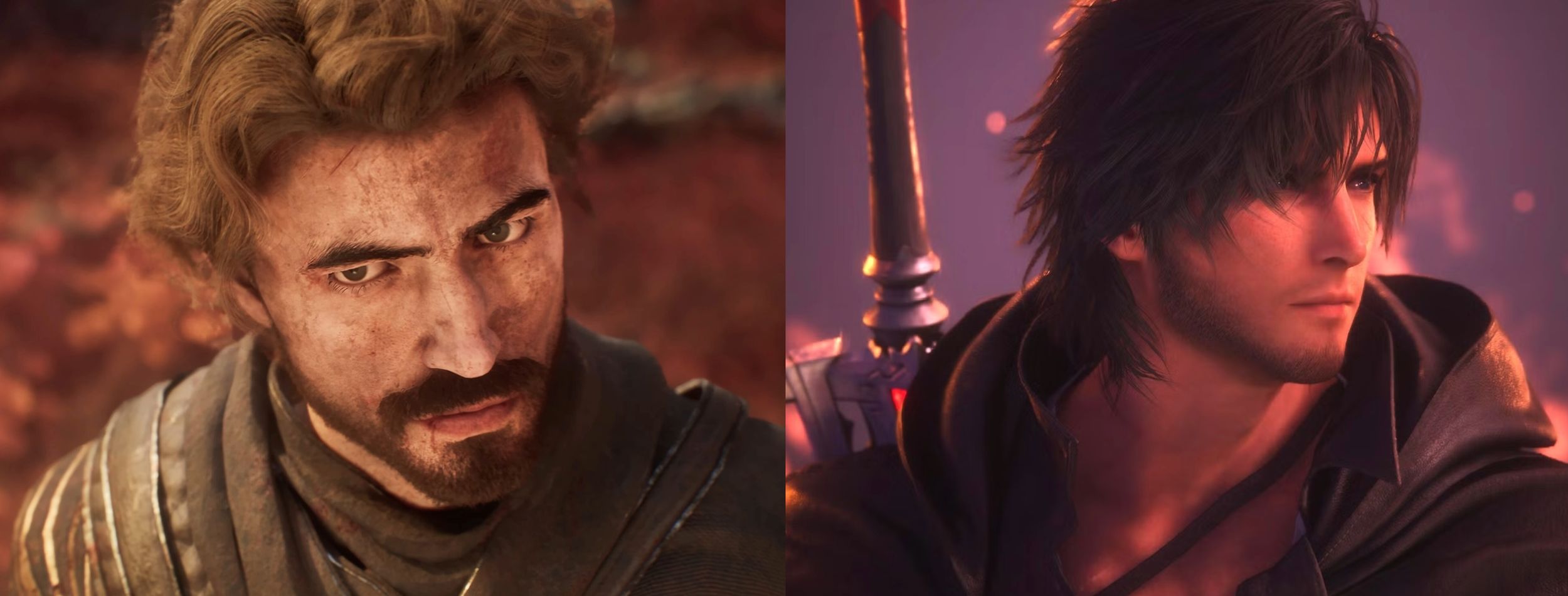Octopath Traveler: The Effect of a Frustrating Shortage of Character Interaction
A significant chunk of my July has been unexpectedly swiped by Octopath Traveler, Square Enix's new Switch-exclusive JRPG. Like the Bravely series that preceded it, Octopath serves as a callback to the golden era of JRPGs while simultaneously bringing modern game design philosophies to the table. While it certainly won't convert any non-fans to the genre, any gamers that are fans of the JRPG genre will be in gaming heaven.
And I'm no exception to this. I've had a blast crawling through dungeons and experimenting with different job setups on characters. Learning new skills and buying new equipment is as addicting as ever. Most importantly, the combat, while perhaps some may find it too grind-heavy, manages to encourage experimentation in order to cover as many weaknesses as possible.
There are certainly strengths to Octopath. I've enjoyed my time thus far with the game despite the issues I've encountered with it. As I'm still yet to finish the game, this won't be a review on Octopath Traveler as a whole, but rather, this will be a discussion on perhaps one of the greatest grievances I've had with the game: the character interactions, or the lack thereof.
At the forefront of Octopath's marketing is the ability to play as eight characters, all with unique abilities and stories that they go through. Unlike most JRPGs that the game takes influence from, Octopath doesn't have a central plot that draws its characters together. There isn't a case of tragic circumstances that make characters unite together, whether they like it or not. Rather, Octopath chooses to tell eight smaller stories that focus on each playable character.
This isn't an inherent issue with Octopath. In a genre that's crowded with save-the-world narratives, it's refreshing to see a JRPG with lower stakes. These smaller stories give us an opportunity to understand the individual dilemmas of each character, all of which feel distinct from one another. In fact, Octopath Traveler has an intriguing cast. However, many have complained about how cliche some of their personalities and stories are. Olberic is a hardened warrior who lost his reason to fight, and wishes to find an old comrade turned traitor. Primrose seeks to avenge the death of her father. H'aanit embarks on a quest to find her mentor that has gone missing. While I would argue that Octopath's character stories are fine, they're definitely not something you haven't seen before.
However, Keisuke Miyauchi and his team at Square Enix made the decision to have very little overlap and interaction between characters and their stories. Does this work to the game's benefit, or does it hold the game back from being as great as the games that inspired it? Let's talk about it.
Final Fantasy VI, one of Octopath Traveler's main influences, is a great example of how character interactions can enrich a story.
In an interview with Jeux Video (with English highlights courtesy of Lelouch0612 on Resetera), Masashi Takahashi, Octopath's producer confirmed that Octopath was developed as a spiritual successor to Final Fantasy VI. As such, I feel that it's only fitting to compare Octopath and FF VI's different approaches to how they tell their stories and, more importantly, how character interactions impact their respective narratives.
FF VI boasts over fourteen playable characters. This may seem like too many characters to create important, plot-relevant relationships to be established between characters in the game. And that's because, well, it is. FF VI gets around this by having roughly half of its playable cast being integral to the game's story. Unlike Octopath, FF VI features a main plot that brings different characters together, all of which are under different circumstances.
Terra's enslavement at the beginning of the game pairs her with Locke, a character that's significantly different from her. Their unlikely pairing with each other create unique interactions between the two characters. Through these interactions, we're given clear understandings of both Terra and Locke's characters. There are numerous instances of this throughout the game, though perhaps one of the most striking is the interaction between Celes and Locke at the beginning of the World of Chaos portion of the game.
The forlorn circumstances of the world being destroyed by Kefka and the isolation from the many friends she made, Celes is hopelessly distraught, even attempting to end her own life. But she manages to find a bandanna in the ocean, giving her hope that Locke and the rest of her friends are still alive. The entire World of Chaos is perhaps defined by character interactions. Both Celes and the player find hope and solace in finding and re-recruiting the playable characters they met earlier in the game.
In the World of Balance portion, character interactions are used as a means of effectively establishing and developing the many characters of Final Fantasy VI. In the World of Ruin portion, however, character interactions are used as a means of instilling hope in the player. By reuniting with characters and seeing the interactions that they have with one another upon seeing each other, the player is given a strengthened resolve to defeat Kefka and return balance to the world.
Numerous character interactions not only strengthens our understandings of the characters of FF VI, but they also reinforce the player's resolve to, well, resolve the main narrative of the game, in addition to the smaller narratives and struggles that some of the game's characters experience throughout the game. Character interactions make FF VI's plot more meaningful, letting the game, as a whole, leave a far more significant impact on the player.
Now let's return to Octopath Traveler, a game that opts to reduce the amount of character interactions among the main playable cast in favor of having smaller stories that are separated from one another. Does this work to the game's benefit? In comparison to games like FF VI that use character interactions so effectively - no, Octopath's approach doesn't really land.
However, while Octopath took inspiration from FF VI, perhaps that inspiration was more prevalent in the game's mechanics, rather than its story. On that front, is Octopath's narrative still good when viewed on its own? Well, it's certainly fine, but it's frustrating when thinking that it could have been much stronger. But perhaps what escalates this frustration the most is that Octopath is so close to having the meaningful character interactions that would enrich its story.
Octopath Traveler has small, skit-like sequences where characters interact, but they feel too few and far away to leave a big impact.
In the game's cutscenes, Octopath's character are treated as if they are on their own. In a cutscene, a character may suddenly fall down a trap door and be left on their own, despite having other characters in their party. This is the extent to which Octopath Traveler divides its characters' stories. Olberic will never appear in a cutscene in Primrose's story, nor will the main cast of characters discuss what Cyrus should do in his story.
However, during each character's chapters, we see dialogue exchanges between the characters in your active party. These are akin to the skits popularized in the Tales of series, though far more limited.
Tales of games' skits often have multiple characters (sometimes even the whole cast) talking about a subject that may be related to the plot, giving us a greater insight into the characters' thoughts on the plot at hand. Alternatively, Tales of games also have skits that aren't related to the plot, but give humorous side events that give us a greater understanding of each character's personality and their relationship with other characters in the main party.
Octopath unfortunately fumbles with its execution of this concept. Unlike Tales of games, Octopath limits you to seeing conversations of those in your active party, and even then, each conversation can only trigger during certain points in a story chapter. This means that, if you want to see all of the conversations between characters, you have to stop by the tavern between each story cutscene to switch characters and see if there are any more character interactions that you can watch.
It's a clearly tedious process. Most players will inevitably only see a fraction of the interactions between characters as a result. It's additionally frustrating since there's some real potential with these conversations that are unfortunately never truly realized. You will never see a conversation between more than two characters*. While this is limiting, it doesn't necessarily rule out the possible effectiveness of these optional dialogue exchanges.
*Edit: Funnily enough, I encountered a travel banter conversation that had three participants the day after this went live. However, the fact that I hadn't seen a travel banter with more than two character until over 40 hours into the game means that the travel banter system is far more limited than I would have ideally liked.
In fact, I found myself greatly appreciating the dialogue exchanges that are here. Seeing Olberic express his humble concerns to Primrose during her story chapters, seeing H'aanit's bluntness clash with Alfyn's naivete, or seeing Cyrus give an hour long lecture to Tressa - all of these gave me a greater understanding of these characters, and made me only want to see more of how they interact with each other.
However, Octopath could have avoided this. If Octopath showed a greater willingness to show these tropes interact with each other in cutscenes, then I feel that Octopath would receive less criticism for using such trope-y characters, in addition to achieving a generally more engaging and unique narrative.
The separation of characters' stories and the frustrating limits of the characters' interactions with one another create a narrative experience that feels very fragmented. This fragmentation causes Octopath to feel like it hosts a party of characters that happen to be going on quests that take them in the same direction, rather than a party of characters that feel like they're going on a quest together.
Does this hurt the general experience of the game? To an extent, yes. Octopath's excellent gameplay loop has more than hooked me in, though perhaps that's a natural result of me having sold my soul to the JRPG genre. Nevertheless, I can't help but feel that the fragmentation of Octopath's story keeps it from being a masterpiece in the genre.
Whenever I think of some of the best JRPGs - Xenoblade Chronicles, Shin Megami Tensei IV, Persona 5, just to name a few -, I admire mainly three things about their core narrative. I admire their main story, their worldbuilding (and how it impacts the story), and the characters with how their personalities enrich the story - something that can easily be achieved through character interactions.
On this front, Octopath Traveler handicaps itself. While the worldbuilding of the game is good, the fragmentation of the game's narrative and the frustrating shortage of character interaction causes the game to suffer. It's for that reason that I'm unsure what I'll think of Octopath Traveler in the long term. As of right now, Octopath is a lovely, yet frustrating game. It's gameplay is great, and the smaller stories are serviceable, if unremarkable.
If more character interaction was thrown into the game and we were given a greater understanding of the game's characters and how they behave around one another, I feel that Octopath Traveler, instead of being a great game, could have been a truly marvelous one.
What do you think of Octopath Traveler? Does its lack of character interactions bother you? As always, join the conversation and let me know. In addition, please look forward to my review of Octopath Traveler coming soon.







